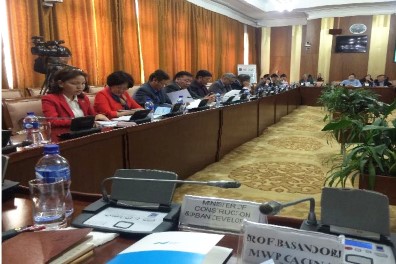The urban population of Mongolia is currently at 69% of the total population (about 3 million inhabitants) and it is expected to grow to 78% by 2025. Water resources are very unevenly distributed in Mongolia, and water quality has become a critical issue. Mining and other industries have caused severe pollution of watercourses leading to increased pressure on scarce water resources.
This is a problem that Mongolia shares with many other urban areas in the world. The very nature of urbanisation contributes to water stress: rapid population growth, inadequate planning, pollution, poverty and competing demands on the resource. The worldwide urban water consumption is likely to double by 2025.
IUWM provides a framework for interventions over the entire water cycle and a reconsideration of the way water is used, and reused. To address the growing need of IUWM, GWP in collaboration with key partners (the University of South Florida and the Water Partnership Program of the World Bank) have developed a toolkit with training modules for stakeholders at all levels. The modules address issues such as stakeholder engagement, water balance, technology selection, institutional arrangements, economics and financing, and several more.
Following the training in Mongolia, GWP Senior Network Officer François Brikké said that the existing modules represent a strong foundation upon which some consolidation can be made.
“As a whole, the modules address the right issues and could be implemented without any major difficulties. However, it was understood from the beginning that the proposed modules are still being finalised, notably the economic and finance modules that will be prepared by the Water Partnership Program of the World Bank, and some modelling tools still need further “tuning”. This first test was an excellent way to take stock collectively of where we stand concerning the development of the modules, and to identify the issues that need attention for further development,” said François Brikké.
Over the coming months, the work continues to assess the results from the testing process and finalise the modules.

